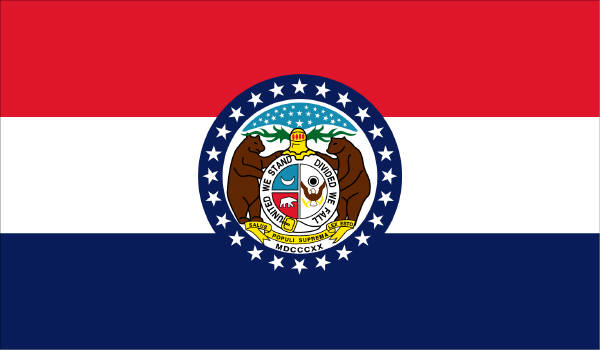Missouri Amendment 11, Property Tax for State University Initiative (1910)
| Missouri Amendment 11 | |
|---|---|
| Election date |
|
| Topic Higher education funding and Property taxes |
|
| Status |
|
| Type Initiated constitutional amendment |
Origin |
Missouri Amendment 11 was on the ballot as an initiated constitutional amendment in Missouri on November 8, 1910. It was defeated.
A "yes" vote supported establishing a state property tax of three cents per $100 of assessed valuation to fund the University of Missouri. |
A "no" vote opposed establishing a state property tax of three cents per $100 of assessed valuation to fund the University of Missouri. |
Election results
|
Missouri Amendment 11 |
||||
|---|---|---|---|---|
| Result | Votes | Percentage | ||
| Yes | 181,659 | 34.54% | ||
| 344,274 | 65.46% | |||
-
- Results are officially certified.
- Source
Text of measure
Ballot title
The ballot title for Amendment 11 was as follows:
| “ | The Eleventh Constitutional Amendment was proposed by Initiative Petition, and was to provide for the support and maintenance of the State University by a direct State levy. | ” |
Path to the ballot
An initiated constitutional amendment is a citizen-initiated ballot measure that amends a state's constitution. Eighteen (18) states allow citizens to initiate constitutional amendments.
In Missouri, the number of signatures required for an initiated constitutional amendment is based on the number of votes cast for governor in the state's most recent gubernatorial election. In two-thirds of Missouri's congressional districts, proponents must collect signatures equal to 8% of the gubernatorial vote for initiated constitutional amendments. A simple majority vote is required for voter approval.
See also
External links
Footnotes
State of Missouri Jefferson City (capital) | |
|---|---|
| Elections |
What's on my ballot? | Elections in 2026 | How to vote | How to run for office | Ballot measures |
| Government |
Who represents me? | U.S. President | U.S. Congress | Federal courts | State executives | State legislature | State and local courts | Counties | Cities | School districts | Public policy |



